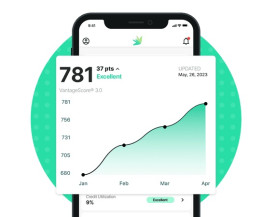The journey to securing the right health insurance coverage is both critical and challenging. With the landscape of healthcare ever-evolving, it has become paramount to ensure equitable access to health services for everyone. This guide aims to shed light on the importance of comparing health insurance options to find a plan that not only meets your health needs but also aligns with your financial situation. By taking a closer look at the current statistics and offering advice on comparison strategies, we hope to empower you with the knowledge to make informed decisions regarding your healthcare coverage.
In the United States, about 8.6% of the population, or 28 million people, did not have health insurance at any point during 2020, according to the U.S. Census Bureau. This statistic highlights the significant gap in healthcare accessibility, underscoring the need for equitable access to health insurance. Comparing health insurance plans can be daunting, but it's a necessary step toward closing this gap. By evaluating various plans based on coverage, cost, and network of healthcare providers, individuals can identify the most suitable insurance policy that addresses their specific needs while adhering to their budget constraints.
One effective strategy for comparing health insurance plans is to utilize the tools and resources available through the Health Insurance Marketplace. This platform offers a side-by-side comparison of different health plans, providing detailed information on premiums, deductibles, and out-of-pocket maximums. Additionally, it includes estimates of potential savings based on income, which can significantly aid in making a cost-effective choice. It's essential to also consider the network of doctors and hospitals associated with each plan to ensure your preferred healthcare providers are covered.
Another crucial aspect of achieving equitable access to health insurance is understanding the subsidies and financial aid options available to low-income individuals and families. The Affordable Care Act introduced measures to facilitate this, offering premium tax credits and cost-sharing reductions to eligible participants. For instance, "nearly 80% of Health Insurance Marketplace consumers had access to a plan for $10 or less per month after tax credits in 2021," according to the Department of Health and Human Services. Being aware of these provisions can significantly lower the financial barriers to healthcare access, ensuring that more people can afford the health coverage they need.
Lastly, seeking professional guidance from a licensed insurance agent or a healthcare navigator can also streamline the process of comparing health insurance plans. These experts can offer personalized advice tailored to your unique healthcare needs and financial situation. Furthermore, they can clarify any confusion regarding plan options, benefits, and the enrollment process, making your journey to securing the right health insurance coverage less daunting and more efficient.
In conclusion, the necessity of comparing health insurance options cannot be overstated, especially in the pursuit of equitable healthcare access. By utilizing available resources, understanding financial aid options, and seeking professional assistance, you can navigate the health insurance marketplace more effectively. Remember, investing time in comparing health insurance plans not only helps in making informed decisions but also plays a critical role in ensuring you and your loved ones have access to the healthcare services you need when you need them.

